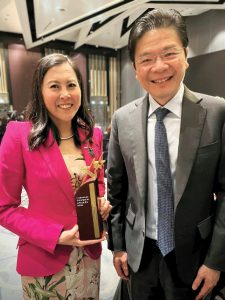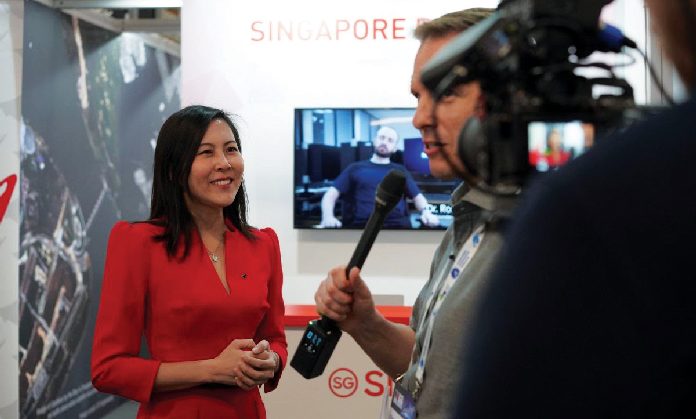
What sparked your love of space?
Growing up, I was always curious about how things worked, from the mechanics of simple machines to the mysteries of the universe. Aged five, I made my first “space rocket” out of an oversized cardboard box! This curiosity led me to pursue a degree and master’s in chemical engineering at Stanford and, eventually, to found Space Faculty.
What made you realise you could create opportunities in this area?
While working in both government and private sectors in Singapore, I noticed that while Singapore and Asia are brimming with talent, the pathways to deep-tech fields like space exploration, AI, and robotics seemed out of reach for many. I wanted to create a pathway for individuals to explore these exciting areas. That vision became Space Faculty.
What’s the mission of Space Faculty?
It exists to help build a “learning roadmap” for students and makes the space sector accessible to those passionate about exploring its potential. We aim to inspire and equip future leaders through unique programmes like the Space Entrepreneurship Bootcamp and the Nano-Satellite Building Workshop with experts from the United States Air Force Academy, held in the second quarter of the year.

What inspires you about working in the space sector?
Space is about dreaming big, solving challenges, and creating opportunities. It’s a frontier that connects science, entrepreneurship, and humanity. Helping others unlock their potential in this realm is incredibly rewarding.
What role do you see space tourism playing in the future of space exploration?
Space tourism is crucial for driving innovation and lowering costs in space exploration. It sparks demand for new technologies and makes space travel more accessible. AI is also a key player in the field, offering groundbreaking potential. It can enhance the affordability, efficiency, and ambition of deep space missions, making the future of space exploration even more exciting!
With International Women’s Day in March, how do you inspire more females to get involved?
The STEM field is male-dominated so representation is key. When young girls see women leading in the space industry, it turns dreams into possibilities. Space Faculty also facilitates internships for both local and international students to understand the space industry, and shadow leaders or work in space companies.

What advice would you give to someone about entering the space field?
I’d encourage them to join space communities and programmes, like the International Space Challenge, the world’s longest-running space competition, or Expand Space, an annual event connecting innovators globally. Space offers endless opportunities fuelled by experimentation, learning, and leadership – all core to Space Faculty’s mission.
spacefaculty.asia
@spacefacultyasia








